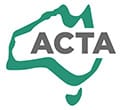International Standards
|
The international standards for a TESOL qualification typically encompass a range of guidelines and best practices that ensure the quality and consistency of English language teaching programs. While there isn't one single, definitive set of written standards for international TESOL qualifications, there are several key elements that are commonly required for a TESOL qualification.
Based on our extensive research and experience, there are typical elements that generally define an internationally recognised TESOL qualification:
Depending on your career aspirations and the context in which you plan to teach, there may be additional expectations or specific standards required. For example:
Employers will have their own processes around the verification of Certificates or Qualifications obtained outside of the country. The benefit of choosing an Australian Government accredited course, such as the Certificate IV, Diploma, Graduate Certificate or Graduate Dipoma is that countries outside of Australia can verify the qualification through the government registry. Our Commitment
At Language Training Institute (LTi), we are dedicated to meeting and exceeding these global expectations. LTi's TESOL qualifications are designed to meet international standards and are widely respected by employers and educational institutions around the world. Our TESOL courses are designed to provide:
We ensure that our graduates are well-equipped to succeed as English language teachers across diverse educational contexts worldwide. Many of our graduates have successfully found teaching positions in various countries, leveraging the strong reputation and comprehensive training provided by LTi since 1996. |
Australian Standards
|
In Australia, teaching positions are much more competitive than overseas or online teaching positions, however, once you are qualified to teach in Australia, you will find that you'll be able to exceed the international expectations in most other countries and online providers. Your existing qualifications and teaching experience (volunteer or paid) play an important role in what types of positions you could potentially hold in Australia.
Australian ELICOS Standards
Source: https://www.englishaustralia.com.au/our-sector/teaching-in-australia In Australian ELICOS centres, employment eligibility and conditions for teachers and certain other English language college staff are regulated by the federal government through the Department of Education. Specifically, the ELICOS Standards 2018 set out that ELICOS teachers must:
There are further requirements for teachers who teach on English language programs in the primary or high school sector. Similarly, there are further requirements for those teachers who teach on English language programs for students under the age of 12. Australian NEAS Standards Source: https://neas.org.au/resources/career-advice/#neas-teacher-qualifications Teachers in NEAS endorsed ELT Centres are required to hold at least the following qualifications:
*1. a recognised degree or equivalent - NEAS affirms that a Bachelor degree or equivalent is at least three years full-time (or its part-time equivalent) in length. Teachers holding a degree or equivalent from overseas institutions should contact the relevant State or Territory education authority or Department of Education and Training to confirm local equivalence. **2. a recognised TESOL qualification - A TESOL qualification results from a program of study having all of the following characteristics:
|
TESOL Courses on Offer
→ Swipe for level options
|
CERTIFICATE IV IN TESOL
Certificate IV in English Language Teaching (TESOL) Accredited Course Code: 11021NAT AQF Level: 4 > For those wanting a comprehensive, practical qualification to get them employment ready for teaching English in Australia and internationally. ✅ Choice of electives ✅ Online or in person Practical Placement (12 hrs) ✅ Option to upgrade to Diploma after completion ✅ Government Accredited + meets NEAS Requirements + Read more ... |
|
DIPLOMA OF TESOL
Diploma of English Language Teaching (TESOL) Accredited Course Code: 11020NAT AQF Level: 5 > For those wanting a versatile, high level qualification which prepares them for teaching English and coordinating English language programs in Australia and internationally. ✅ Dual TESOL Qualfication option available ✅ Advanced English program design & management skills ✅ Online or in person Practical Placement (20 hrs) ✅ Government Accredited + meets NEAS Requirements + Read more |
|
GRAD CERT IN TESOL
Graduate Certificate in English Language Teaching (TESOL) Accredited Course Code: 11057NAT AQF Level: 8 > A high level post-graduate qualification, for those already holding a Bachelor degree and wanting a comprehensive, course which prepares them for teaching English and coordinating English language programs in Australia and internationally. ✅Tailor your programs with English for Specific Purposes ✅ Online or in person Practical Placement (60 hrs) ✅ Government Accredited + meets NEAS & AMEP Requirements + Read more ... |
|
GRAD DIPLOMA OF TESOL
Graduate Diploma of English Language Teaching (TESOL) Accredited Course: 11058NAT AQF Level: 8 > For those already holding a Bachelor degree and wanting a premium level versatile qualification, which prepares them for a diverse range of English teaching specialist areas. This qualification can be used in Australia and internationally. ✅Complete four specialist electives of your choice ✅ Online or in person Practical Placement (80 hrs) ✅ Partial credit given for Graduate Certificate in TESOL graduates ✅ Government Accredited + meets NEAS & AMEP Requirements + Read more ... |
|
INTERNATIONAL CERTIFICATE
of English Language Teaching (TESOL) A specialised training program designed for use in global settings. > A perfect fit for those new to English teaching, with topics ranging from cultural sensitivity in the classroom to specialised techniques for teaching English online + a practical placement experience included to get you employment ready. ✅ 200 hour TESOL / TEFL Certification ✅ Online or in person Practical Placement (9 hrs) ✅ Option to upgrade to accredited Course after completion + Read more ... |
|
PREPARATORY CERTIFICATE
of English Language Teaching (TESOL) A theory-only training program designed for use in global settings. > For those wanting a fast-tracked theory-only program, covering topics ranging from cultural sensitivity in the classroom to specialised techniques for teaching English online - ideal for those taking their first steps in English teaching. ✅ 160 hour TESOL / TEFL Certification ✅ Fast-tracked, theory only training ✅ Option to upgrade to accredited Course after completion + Read more ... |










